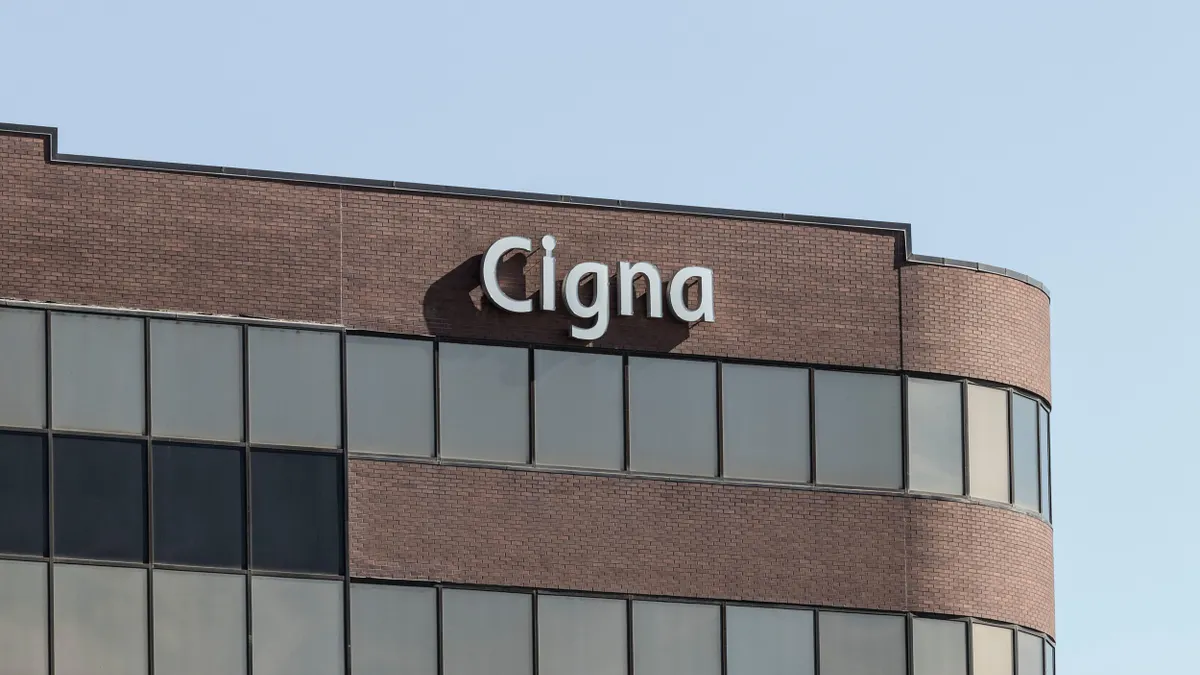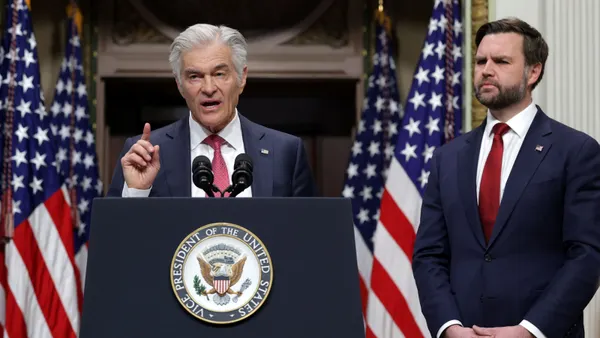Name: Dr. Amy Flaster
Previous title: Chief medical officer, Cigna Healthcare
New title: Chief medical officer, Cigna
Flaster joined Cigna late last year as the CMO of the Connecticut-based company’s health insurance arm. But now, she’s stepping into an expanded role as CMO of the entire business, encompassing both Cigna Healthcare and health services division Evernorth.
Starting Nov. 1, Flaster is leading Cigna’s efforts to improve clinical performance, including testing and introducing new care models, overseeing providers and determining where technology could be an asset.
Flaster, a practicing primary care physician, started her career at Brigham and Women’s Hospital in Boston before founding a health IT platform for advance directive documentation, according to her LinkedIn. She then pivoted to hospital leadership, joining Partners HealthCare — now known as Mass General Brigham — as associate medical director in 2016.
Flaster also led population health strategy for data and analytics company Health Catalyst before transitioning to ConcertoCare, a value-based home care provider for seniors, as chief medical officer in 2021.
At Cigna, Flaster will report to COO Brian Evanko.
Her appointment coincides with the departure of Dr. David Brailer, a longtime healthcare executive who served as Cigna’s chief health officer since 2022.
Cigna did not respond to questions about Brailer’s departure and whether the CHO role would continue past his exit. Brailer was the first to hold the post.
Similarly, Cigna’s head of business improvement and innovation Chris DeRosa is also departing to retire after more than two decades at the company.
Cigna also announced that Katya Andresen, Cigna’s chief digital and analytics officer, will oversee the company’s “excellence and transformation” efforts, which shapes customer engagement.
Like other insurers, Cigna has been trying to increase consumer trust at a difficult time for the industry. Healthcare costs have been rising, particularly in government programs, cutting into payer profits. Meanwhile, consumers, regulators and lawmakers are up-in-arms about improper delays and denials of medical care.
Cigna pledged to make healthcare more affordable and easier to access in January, one month after the killing of the top executive of rival insurer UnitedHealthcare kickstarted industry soul-searching about worsening public sentiment.
Since then, the company has moved to tie executive compensation to customer satisfaction, reshuffled its C-suite, pledged to reform controversial utilization management strategies and shared plans to move away from much-maligned rebates in its pharmacy benefits manager.












